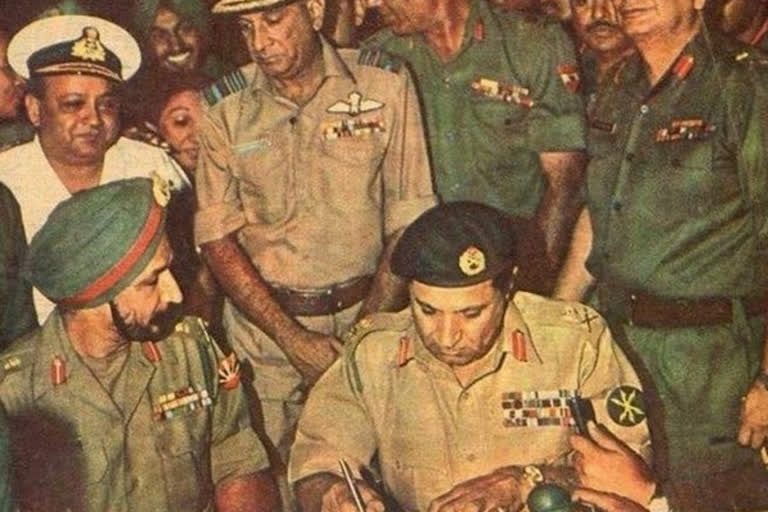Dehradun: The nation is commemorating India's triumph over Pakistan in the 1971 Bangladesh liberation war on Friday by celebrating Vijay Diwas. India declared victory on December 16, 51 years ago after Pakistan signed the Instrument of Surrender, following a 13-day India-Pakistan war. With the surrender of over 93,000 soldiers, Pakistan Army's capitulation against Indian forces was complete. Following this decisive victory, India announced itself as a major regional force.
The catalyst of the conflict was the struggle of the Bangladeshi people for independence, West Pakistan's mistreatment of the Bangladeshi masses and the subversion of the outcomes of the elections in East Pakistan. The extensive genocide of the East Pakistani people committed by the authoritarian military government of Pakistan, led by General Yahya Khan, was another reason for the conflict. East Pakistan made the formal request for succession on March 26, 1971.
On December 3, 1971, Pakistan launched preventive airstrikes against 11 stations of the Indian Air Force. In all, thirty-two aircraft out of an inventory of 278 fighter planes took part in the initial strike that started between 5:09 pm and 5:23 pm, but was not successful. Following this, the Indian Army was ordered to aid Bengali nationalist organisations in their fight for Bangladeshi independence in East Pakistan.
During his interrogation in India after the war, Lt Gen AAK Niazi said that Pakistan's strategy was centred on the premise that India had 'planned only a limited action' for establishing Bangladesh Government in East Pakistan. On the basis of this assessment, Pakistan deployed her forces thinly all along the border spread out over twenty-five hundred miles and ordered them to hold on at any cost. As a result, Pakistani troops were pinned down at the periphery. This enabled the Mukti Bahini to expand their sway inside East Pakistan. In reality, the Indian objective was not capturing a chunk of territory, but by the time this was realised, it was, too, late for Pakistan to rectify its strategic mistake.
The Mukti Bahini insurgents in East Pakistan teamed up with Indian forces to combat Pakistani troops in the region. The Southern Command protected the nation's borders during the conflict from Pakistani aggression. The legendary battles of Longewala and Parbat Ali are among the conflicts fought in the Southern Army's operational region. Here, tenacious Indian troops decimated Pakistan's armoured forces.
